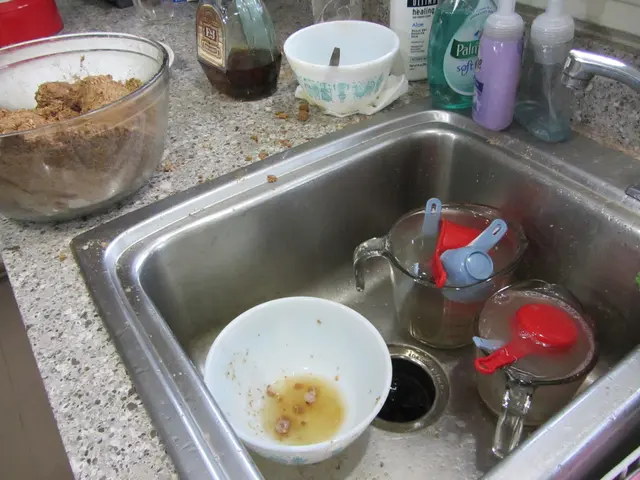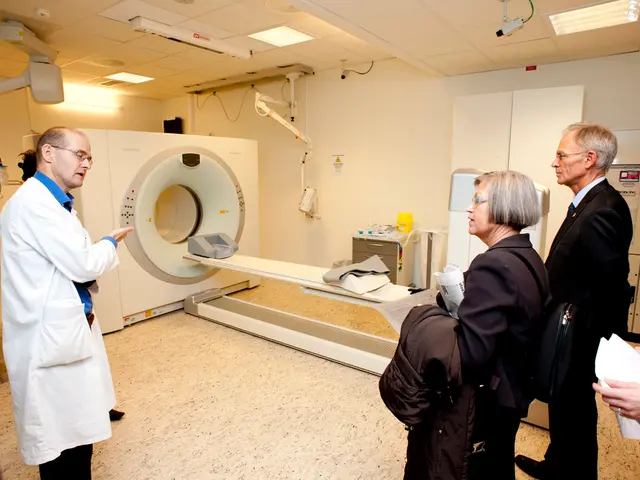Importance of Safe Medication Use for Individuals Suffering from Parkinson's Disease
In Coffs Harbour Hospital, a team of clinicians led by Vince Carroll, a Parkinson's Clinical Nurse Consultant, embarked on an award-winning project to improve medication management and patient safety for individuals diagnosed with Parkinson's. The collaborative initiative with Jess Andrews, a pharmacist, and Kirsten Deutschmann, an occupational therapist, focused on specific interventions that addressed medication-related barriers in this vulnerable patient group.
With Parkinson's patient Michael Ortiz personally affected by delayed medication administration during hospital stays, the team identified that only 44 percent of Parkinson's patients received their medications on time each year. Delayed medications can exacerbate symptoms such as tremors, rigidity, confusion, and agitation. Targeted strategies to improve timely dosing became crucial to enhancing patient care and recovery.
Key interventions implemented during the project included individualized medication plans, staff education, multidisciplinary collaboration, and the use of Parkinson's medication guidelines and alerts. By aligning medication regimens with each patient's specific requirements, implementing hospital protocols, and fostering communication among healthcare professionals, the team aimed to minimize medication errors.
Results showed significant improvements in medication administration, reduced average hospital stays for Parkinson's patients, and better access to the correct medications. Furthermore, the project led to improved teamwork and consumer satisfaction. Essential learnings from the initiative have been incorporated into the Parkinson's education module on the NSW Government Health Education and Training online platform and played a role in a research collaboration between Parkinson's NSW, the Mid North Coast Local Health District, and Charles Sturt University.
Simple yet effective changes, such as moving medications to easily accessible locations within the Emergency Department, also contributed to the project's success. These changes required a cultural shift in hospital practices, demonstrating that even small modifications can have a significant impact on patient care.
In addition to the project's strong outcomes, both Michael Ortiz and Vince Carroll have published articles on Parkinson's medication management in hospitals. Ortiz's paper, titled "On time - every time," and Carroll's "Purposeful collaboration: Enriching lives for people with Parkinson's disease" provide further insights into the team's innovative approaches to medication management.
- Science has a significant role in addressing medical-conditions like Parkinson's, as demonstrated by the award-winning project in Coffs Harbour Hospital.
- Workplace-wellness initiatives can lead to improved patient care, as shown by the collaborative project on medication management for Parkinson's patients.
- Delays in cancer treatments, similar to medication administration for Parkinson's, can have detrimental effects on a patient's health.
- Respiratory-conditions can be exacerbated by delayed treatments, making timely interventions crucial for patient recovery.
- Good digestive-health is essential for overall wellness, yet it often takes a backseat in healthcare conversations.
- Eye-health is often overlooked but is crucial for maintaining a good quality of life and health, much like the project for Parkinson's patients.
- Hearing impairment can lead to isolation and confusion, similar to the challenges faced by Parkinson's patients with delayed medication administration.
- Health-and-wellness is a holistic approach, extending from fitness-and-exercise regimes to mental-health support.
- Autoimmune-disorders require specific therapies-and-treatments to manage, similar to the personalized medication plans in the Parkinson's project.
- Climate-change can impact human health by increasing the prevalence of respiratory-conditions and insect-borne diseases.
- In the manufacturing industry, maintaining a safe and healthy work environment is vital for employee productivity and mental-health.
- Skin-care practices can influence skin-conditions, making them an essential part of health-and-wellness.
- Space-and-astronomy studies can provide insights into potential threats to our planet's health, such as climate-change.
- Retail companies can contribute to environmental-science by promoting sustainable-living practices and products.
- Interior-design plays a role in creating conducive environments for healing, as seen in the project's focus on making medications easily accessible within the Emergency Department.
- Transportation infrastructure can influence physical fitness-and-exercise habits, impacting cardiovascular-health.
- Wearables can help manage various medical-conditions, such as monitoring heart rates for cardiovascular-health.
- Smart-home-devices can assist individuals with different health-and-wellness needs, like providing reminders for medication dosages.
- Cybersecurity is essential in protecting sensitive health data stored in the cloud-computing systems.
- Lifestyle choices, such as diet and exercise, can impact mental-health, making nutrition an integral part of wellness.
- Outdoor-living spaces can foster physical fitness-and-exercise and provide opportunities for gardening, promoting sustainable-living.
- Fashion-and-beauty trends can have an impact on skin-conditions, highlighting the importance of safe and ethical practices.
- Investing in healthcare, sickness, and wellness is crucial in wealth-management strategies.
- Wealth-management involves home-and-garden investments as well, as homes can promote health and wellness.
- Home-improvement projects can contribute to energy efficiency, reducing the impacts of climate-change on health.
- The business sector, including venture-capital, private-equity, and fintech, can invest in initiatives that improve health-and-wellness, aiding in the creation of a healthier society.








